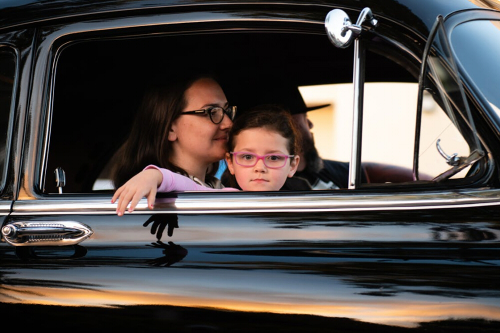Rideshare Companies Like Uber and Ola Can Only Be Used by Essential Workers in Melbourne Under Its Stage Four Lockdowns
Sharon Masige
Rideshare companies have restricted use in Victoria.
The state’s coronavirus cases have led to Melbourne being placed under stage four restrictions while regional Victoria will return to stage three restrictions. Face coverings are mandatary across the whole state.
For rideshare companies and taxis in Melbourne, it means they are only allowed to support access to permitted services and provide transport for essential workers. There could soon be stricter limits on passenger numbers, the SMH reported.
DiDi spokesperson Dan Jordan told Business Insider Australia via email the company has seen a decline in use in Melbourne during the second round of lockdowns.
“DiDi has experienced a drop in rideshare trips in Melbourne since stage three restrictions were put in place during the second wave of lockdown, and further decreased since the introduction of stage four last weekend,” he said. “However, we have seen a steady use of the DiDi platform in the city as people look to rideshare as an alternative to public transport for essential travel.”
Jordan said DiDi will continue following all state and federal government regulations to keep Australians safe during the pandemic.
“DiDi is in close contact with, and regularly engages, the Victorian commercial passenger vehicles regulator to ensure that it operates in line with all new and existing regulations,” Jordan added.
In terms of passenger limits, Didi will continue with its two-person limit in Express vehicles and a four-person maximum in its seven-seater Max service.
“We are allowing four people in Max vehicles due to exemptions on the two-person rule for individuals in caregiving positions – for example, a parent with two or more young children,” Jordan said. “This goes above and beyond current regulations in Victoria, with DiDi moving to this model to maximise the safety of its riders and driver-partners.”
Jordan added that DiDi rolled out its parcel delivery service as a way to help drivers earn money as travel has reduced. This service launched in Melbourne and Perth, and more recently in Sydney.
“While overall trips are down, we are experiencing week-on-week increases for our Delivery service in Melbourne,” Jordan said.

Ola’s usage has also declined in Victoria
Rideshare company Ola has seen a drop in usage in Victoria during the second round of lockdowns.
Since the start of the pandemic, Ola recommended that riders only use the back seats and keep up with social distancing.
An Ola spokesperson told Business Insider Australia via email the company “welcomes any government restrictions on rideshare as an appropriate public health response.”
“We continue to work very closely with relevant authorities to ensure that Ola rides meet the highest possible hygiene standards and comply with all government requirements,” the spokesperson said.
Ola will also inform its drivers should there be any passenger limits imposed on rideshare companies.
“The safety and wellbeing of our drivers and riders is of paramount importance to us,” the Ola spokesperson said. “In the case of new restrictions and limitations introduced by state government, we would immediately notify Ola drivers and riders and require them to comply.”
Uber encourages use for essential travel
Uber has been suggesting riders in Melbourne use its platform for essential travel.
“We are advising Melbourne riders via an in-app message to only use Uber for essential travel,” an Uber spokesperson told Business Insider Australia in an email. “We want to help driver-partners stay safe and ensure that rides are available for those who need them.”
Uber said its UberX capacity has been “reduced” since March, with the company asking its riders to sit in the backseat during the pandemic as well.
Uber has also rolled out face mask measures for drivers in Victoria. Prior to face masks becoming mandatory in Victoria, Uber moved to distribute 860,000 single-use face masks to active drivers in the state.
“Drivers and delivery partners in Melbourne who are providing crucial services, such as helping essential workers get around or delivering food or goods so people can stay home, would be required to wear a mask or covering when using the platform,” Uber said. “The same policy applies to riders using the Uber app.”
The rideshare platform is also utilising technology to help confirm that drivers and delivery-partners are wearing a face covering or mask before they can start using the Uber app.








